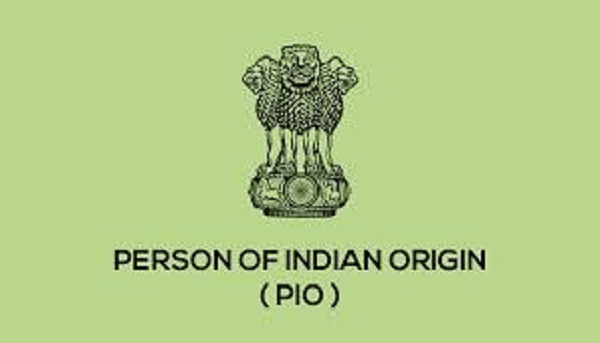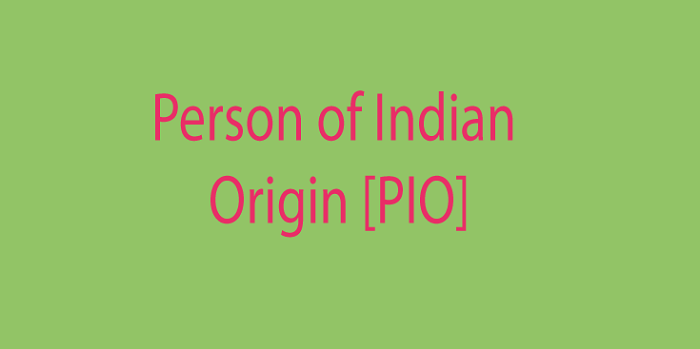What is the full form of PIO
PIO: People of Indian Origin
A foreign citizen except for Pakistan, China, Afghanistan, Bangladesh, Iran, Sri Lanka, Bhutan and Nepal is referred to as a Person of Indian Origin (PIO):
- Who has ever had a passport from India;
- Person, or any of their parents, grandparents, or great-grandparents, was born in India, as defined by the Government of India Act of 1935, and other regions that later became a part of India, provided that neither was ever a resident of any of the countries as mentioned above; or
- Who is a partner of an Indian citizen or a PIO

PIO Card Advantages
The PIO (Person of Indian Origin) card has the following main advantages:
- For 15 years, holders would not need a visa to visit India starting on the date of the PIO card's issue.
- If the stay is less than 180 days, they are exempt from registering with the FRRO/FRO. If the stay is more than 180 days, they must register with the FRRO/FRO within the next 30 days.
- Additionally, it enables them to benefit from financial, economic, and educational advantages on a level with NRIs, including holding transfers, purchases, and selling real estate, except plantation or agricultural estates.
- Accepting children into any educational institution under the general NRI admissions category covers medical and engineering schools like the IIT, IIM, etc.
- Utilizing various housing services available by the Indian LIC, state governments, and the federal government.
Persons of Indian Origin cards will be able to access all future advantages offered but not available to NRIs. The PIOs are not allowed to occupy constitutional offices in the Indian government nor have job privileges inside the Indian government services. They would need authorization to engage in missionary activity, mountaineering, study or enter any prohibited sections of the country.
Eligibility

Any individual:
- Whoever at any time held an Indian passport; or who was born in India.
- Who is the spouse of an Indian citizen or, as previously noted, a Person of Indian Origin.
- The comprehensive system involves coverage for a maximum of four generations and the overseas spouse of an Indian citizen or PIO.
Instructions for PIO card applicants
A completed application and the necessary paperwork can be delivered to the High Commission in person.
Required Documentation
You must send the following paperwork with your completed PIO application.
1. An original, current, or expired Indian passport
2. A minimum of two of the following documents:
- Expired Indian passport photocopy
- Original or photocopies of the applicant's parents' or grandparents' Indian passports
- Birth certificates for both the applicant and their parents or grandparents.
- Certificates of nationality for the applicant and their parents or grandparents.
- Credentials from high school or college are issued to the candidate, their parents, or their grandparents.
3. A PIO spouse application must provide the following information:
- The spouse's authentic Indian passport or PIO card
- Original marriage license
- The applicant's four passport-size photographs
- A cash payment of US$388 (US$180 for minors under 18) is required at the High Commission.

What reasons exist for cancelling a PIO Card?
- A significant fact was concealed, or fraud, false representation, or deception was used to obtain the PIO Card; or
- The holder of the PIO card has shown a lack of respect for the Indian Constitution and other Indian laws by actions or words;
- The PIO card issuer is a resident or subject of a nation at war with India or waging foreign aggression against it or of any country aiding that nation in its conflict with India or its aggression;
- The PIO cardholder was convicted in India of engaging in terrorist activities, smuggling weapons, ammunition, drugs, or other items, or was found guilty of a crime punishable by up to a year in jail or a fine of up to ten thousand rupees; or
- If the person's continued possession of a PIO Card is not in the public interest.
|



 For Videos Join Our Youtube Channel: Join Now
For Videos Join Our Youtube Channel: Join Now









